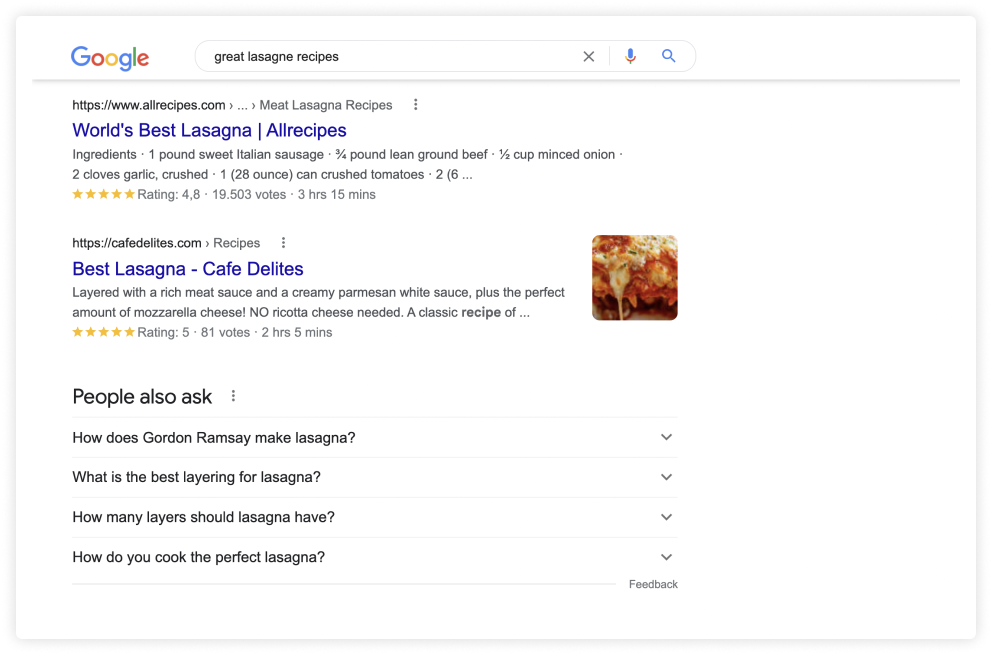Content Marketing and SEO
08 Oct, 2021

Content Marketing & SEO
We all know that content is key for SEO but can SEO help with content marketing? Also, what is the difference between SEO and content marketing?
These are common questions. As you will see in this article, the two digital marketing activities should not be thought of as interchangeable. They are a crucial part of modern marketing. This article will explore the relationship between content marketing and SEO, what the difference is between the two areas of digital marketing, and the best techniques for SEO content and content marketing.
The Aims of SEO Content
SEO content is all about attracting as many of the right visitors as possible to a marketer’s site from search engines like Google. By right I mean visitors who will be interested in buying or using a site’s services. The key to getting traffic that converts is securing top rankings for the phrases these groups are using on search engines.
Content is a key part of this activity as it is the very thing Google uses to decide the relevance of your site’s pages — No matter how well technically optimized your site is, unless Google thinks your content is relevant for the query the user is asking, it won’t rank for it. Admittedly there is also a minimum technical requirement for Google to be able to find your content in the first place, but after this has been set up, the next most essential step for getting your pages listed for a specific query is optimizing your content for SEO
Tip: If you are looking to work on the technical side of your SEO to make sure Google can find your website, conduct a full audit of your website’s technical SEO with rankingCoach 360 and use easy-to-follow video tutorials to improve your rankings.
Getting Your SEO Content Indexed
Having used keyword tools to find the best value keywords to target on search engines, the next step is to get Google to list your site in the results for these keywords. Search engines aren’t like the music business — it’s almost impossible to come straight in as the #1 search result for a term.
You need to climb up the rankings, and before you can do this you need to get Google to identify our SEO content and the pages they are optimizing as a potentially good answer for the users' query. The Google algorithm is the judge of this: interpreting the user query and your content on a semantic level, working out what the user wants and the best content for this need. If no SEO content from your site appears in the search results, this likely means that Google has crawling issues with your site which means you should work on key technical SEO areas such as submitting a sitemap.
Great examples of Content for SEO
The Google algorithm is the product of decades of obsession with serving the user. To get your site listed, your SEO content must convince Google that your page will do the best job and serve the user’s needs. The words on the pages that you want Google to find and list to appear in its results are your SEO content.
To get the best results with SEO content you must convince Googlebot that the SEO content you have written to target a keyword phrase is doing the best job of answering that question for users who click on it on the Google search results page. The exact definition of what the best SEO content should be will depend on the term it is targeting.
You can often find great examples of SEO content simply by looking at the top results for a term that has a lot of competition on the SERP. For instance, if I type ‘great lasagne recipes’, Google quite rightly assumes that I am looking for instructions on how to make lasagne. The top results are all good examples of well-optimized SEO content

The title of the top-ranked article is ‘World’s Best Lasagna Recipe’ — note that in the query the dish was spelled ‘Lasagne’ and the word adjective ‘great’ was used. The Google search algorithm is clever enough to know that these words have a similar meaning in the sense used.
The top-ranking content ranks first because it is well written, has few mistakes, is technically optimized enough for Google to find it, and uses the terms the searcher used, or ones linked to it, multiple times throughout the page: The word recipe is mentioned 54 times; including the reviews below the recipe, the word lasagna is used 120 times; lasagne is also used twice in linked items at the bottom of the page. This is an example of great SEO content.
Tip: A big part of creating the best SEO content is finding the best keywords to target with your SEO content.rankingCoach Free makes this easy with its keyword finder feature.
Get Free Keywords Tools Now
Doing Content Marketing with SEO
All of the factors listed above made this page rank originally and they will have played a role in its climb up the Google rankings, But another key factor for success with SEO content on search engines comes into play after it begins to rank — the user’s response to the SEO content.
It’s important to remember that Google tracks the response of users to pages they click on in the results to generate key rankings factors such as bounce rate: the percentage of users who quickly click straight back to the results, and page time: the amount of time a user spends on a page. These kinds of indicators do a pretty good job of showing if users like reading your site’s SEO content. This is why writing relevant and interesting SEO content is so important: it keeps the user interested and engaged which is a crucial way to climb the search engine rankings and get more traffic to your website.
Tip: The SEO content you write can be improved over time. If your content isn’t moving the rankings this is a sign that it can be improved. An easy way of tracking the progress of your keywords on Google is with keyword tracking tools like those found in rankingCoach Free.
The Focus of SEO Content
Content created for SEO is solely focused on getting as many of the right visitors to a site as possible and using your business’s products and services. This is why we refer to SEO as a marketing channel. The function of all marketing channels is to communicate a business's marketing message with its target audience.
The reason why SEO is a marketing channel and not search engines is that search engines like Google are also part of other marketing channels including local marketing and SEM (Google Ads on Google). Also, Google may be the place where customers find a website, but SEO makes it possible for the site to appear in the results in the first place. If a site isn’t optimized correctly, search engines won't list it in their results.
SEO Content Marketing strategy
Creating content for SEO is all about keeping the user happy and moving up the search engine results. The strategy for SEO in Content Marketing has a different focus. To understand this we first need to know the answer to an important question:
What's The Difference Between SEO and Content Marketing?
Content marketing is a marketing strategy that uses marketing materials with a less direct sales approach to build a connection with customers. Before the internet, content marketing was contrasted with direct selling techniques such as cold calling and couponing where the emphasis is strictly on the product and selling it.
The main difference between SEO and Content marketing is that content marketing focuses on connecting with consumers rather than just getting top rankings on search engines. This can be through offering educational material that helps potential customers to better understand a business's products or industry, or this content can be very loosely connected fun materials that help to make customers remember a brand or build up a positive association.
This can be a great way of building a brand, as next time these customers need one of the products a company sells, the content marketing materials will have built their trust in their brand, so consumers will be more likely to overcome the natural fear of trying new products for the first time.
This concept isn’t new, Irish brewer Guinness has been doing it for centuries. They invented the Guinness book of records for these very purposes. Now each year they flood local bars with free hats, leaflets, and articles on how to have the perfect St Patrick's day. This content marketing has been so successful that Guinness has become synonymous with the day.
How SEO Helps Content Marketing
The main difference between traditional approaches to content marketing and those increasingly used in the digital age is the reliance on being discovered online by users interested in linked topics, especially through search engines.
This is where SEO and content marketing fit perfectly together. Consumers use the internet to help them solve problems and provide entertainment and education. Keyword tools make it possible for marketers to understand what these interests and preferences are. Marketers can create content that caters to these needs to bring traffic to their websites.
An added bonus of content marketing with SEO is that every time a visitor clicks on your content in the search engine and lands on your blog articles containing fun or educational content, they are brought straight to your site. Providing your calls to action and menus are well set up, they are just one click away from your product and service pages. If interesting content is well-targeted, getting a good amount of traffic is almost inevitable, with a high enough volume of clicks a conversion rate of a few percent can still result in thousands or even millions of sales.
Tip: If you are looking to boost the amount of traffic the comes to your website you should also work on your site’s technical SEO, conduct a free full audit of your website’s technical SEO status with rankingCoach 360
Great SEO content Marketing techniques
The important thing to remember about content marketing is that your marketing materials need to create a positive association and experience for visitors to your site.
Content Marketing Technique 1: Helpful Content
This can be linked to your products but a key technique with content marketing is to apply less pressure than direct sales. The content should not feel like a pressured sales pitch. For example, a blog post showing visitors on your site how to make a great cup of coffee, with well-shot images of the coffee machine. In the article, you also include a link at the bottom of the product page can be a great example of content marketing.
You may say, ‘I see adverts on the TV for coffee machines all the time where they are making coffee, and this is obviously direct selling, so what is the difference?’ Well in the blog article on making the best cup of coffee you really need to give the user useful and interesting tips not just sell your coffee machine.
A core aim in SEO content marketing is to create goodwill in potential customers by offering them something that is actually useful. If your tips on how to make good coffee really does help the customer to drink a better cup of coffee, they are then much more likely to be interested in the coffee machines you have to offer. Using this technique with your content marketing will also make it more likely that your readers will share your content.

Search Content Marketing
Another great example of content marketing with SEO could bea hotel owner who creates a useful and appealing tour guide for tourists visiting their area based around the terms tourists are asking search engines such as ‘things to in xxx’ ‘top restaurants in xx’
Or how to ‘get around xxx’.If this content is genuinely helpful and enjoyable some of these customers will keep the hotel in mind

Content Marketing Technique 2: Sharable Content
Providing useful resources for potential customers that they can find through search engines can also bring customers from other channels to your site. If many people enjoy something or find it helpful, some of them will share it on social media. Some sites also include downloadable content as part of their blog articles that they directly encourage visitors to download and share. These can be key term guides or appealing infographics.
SEO Strategies Used in Content Marketing
The techniques from SEO are often used in content marketing strategies on other digital marketing channels. We find many of the videos we watch on Youtube using the search bar.
The keywords in the description and title of these videos are what make them discoverable on Youtube. By using SEO keywords strategies in their video content marketing strategy, marketers maximize the reach and effectiveness of these videos.
It's also important to remember that many viewers of these videos find them on search engines. Don’t forget, Google owns Youtube. In many ways, the site functions as a search engine for videos. If you want to do video content marketing you should make sure you focus on finding the best value keywords for your meta titles and meta descriptions.
Like SEO, you also should focus on the intent of those searching for the video and deliver content that best serves their needs. If you are making tutorial content the concerns are similar to the lasagne recipe example for SEO: The content needs to fulfill its purpose in an engaging and interesting way.
Marketers can use keyword research on search engines to find terms customers use that are linked to their products and create content that helps the user. This content could be the SEO-optimized blog articles or keyword-optimized videos that lead potential customers back to the content owner’s site.
A great example of video content marketing that utilizes SEO techniques is men’s tailors, Reef Knots. Their video: How to Tie A Tie - Half Windsor Knot - Easy Method! The video has over 2.5 million views from people who need to learn the technique for an important day. Some of these viewers will have become acquainted with the brand, will be grateful that their tie looks great for the wedding or job interview they are attending, and buy some Reef Knots from their website that is crucially linked in the video description.
Going Beyond SEO with Content Marketing
You will find great examples of content marketing across all digital market channels. From major brands who share video content from interesting sporting and cultural events to boost their reach on social media. This is an effective way to build an online following. Engaging content will attract more followers and shares, which will, in turn, grow a brand marketing reach.
Every time a potential customer subscribes to the social media channels of a brand, they create a valuable direct channel with it. Customers will not stay subscribed to a business channel that solely consists of product promotion for long. Content keeps consumers interested and receptive to occasional offers and announcements, making it an essential part of Social Media Marketing.
Tip: If you are looking for more great content marketing ideas for Social Media Marketing, you should check out the competitor and social media monitoring feature on rankingCoach Free
Conclusion on SEO Content vs Content Marketing with SEO
Effective content marketing with SEO brings visitors to a site by creating content that entertains or helps them in a way linked to the search query they are using on Google. It creates a relationship that will lead to long-lasting brand loyalty.
Content is an essential part of SEO, it is the writing on the pages that get your site ranked in the first place.SEO and content marketing are sometimes confused because content marketing can utilize tools and techniques of SEO, especially when creating informative problem-solving content that targets customers through search engines. SEO and content marketing are important digital marketing terms.
SEO content is all about maximizing the number of clicks a site gets from Google results. Whereas content marketing with SEO is about appeal to consumers’ needs, interests, and curiosity. It is a vital tool for building a brand and an online following. To increase your chances of succeeding online you should use the most useful parts from both approaches in your digital marketing strategy.
Boost Your SEO & Content Marketing
Get FREE Keyword Research and tracking features with rankingCoach FREE
